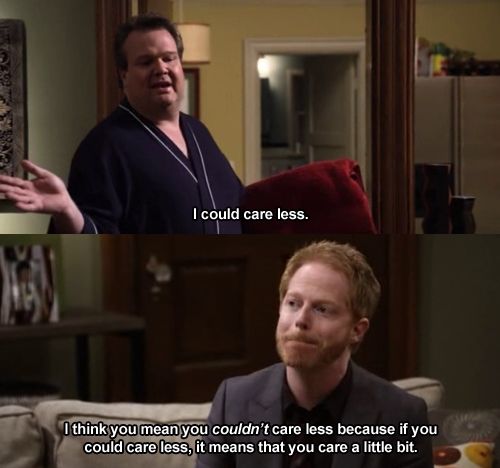"I couldn't care less" is an idiom. An idiom is an expression in which the words that create it must be interpreted separately from its literal meaning. It has a figurative meaning. It just so happens that this idiom is both literal and figurative at the same time.
"I couldn't care less" means that you do not care at all.
Example of when the phrase "couldn't care less" is used correctly:
-- His opinions are so far-fetched, I couldn't care less about them.
Meaning: I don't care at all about his opinions.
Because the expression is an idiom, to try and make use of it, but in the affirmative, is illogical.
Example of trying to use "could care less" correctly:
-- I hate when people swear too much. I could care less.
Meaning: I hate when people swear too much. Why do I care?
Although it is not impossible, to use the expression in the affirmative is awkward.




 RSS Feed
RSS Feed